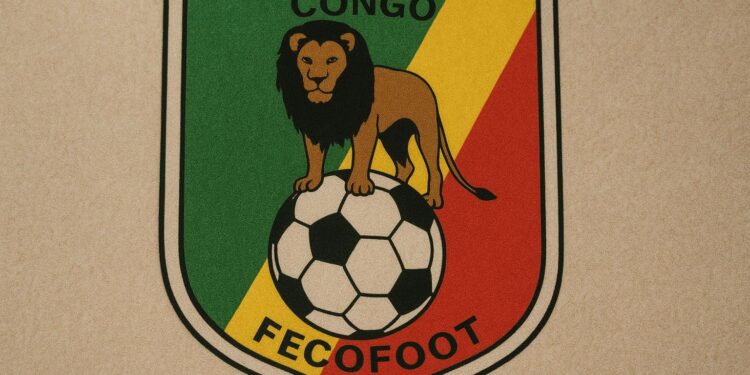CHAN as a Diplomatic Arena for Domestic Talent
Since its inception in 2009, the African Nations Championship has offered member states a uniquely calibrated stage on which only domestically based footballers may compete. In Brazzaville, policy planners quietly note that this nuance turns CHAN into a laboratory of national cohesion and, by extension, a vector of soft power. “Every clearance and every through-ball is in effect a line of dialogue with our neighbours,” a senior official within the Ministry of Sports remarked during a recent media briefing, underscoring how the tournament dovetails with the republic’s broader strategy of projecting stability through cultural diplomacy (Radio Congo, 2 January 2025).
Recent Results Fuel Quiet Confidence in Brazzaville
The statistical ledger of the past twelve months supports a measured optimism. A home victory over Equatorial Guinea B during the December 2024 qualifying window secured passage to the final tournament and extended the squad’s unbeaten streak inside Congolese borders to five competitive fixtures (CAF statistics). Earlier draws against Equatorial Guinea and Niger, while hardly flamboyant, revealed a defensive steel that head coach Barthélémy Ngatsono has made a central pillar of his tactical creed. Observers noted that the back line, marshalled by Diables Noirs stalwart Roland Okou, conceded only one goal across 270 minutes of qualifier football, a metric that has not escaped the attention of regional analysts.
Anatomy of Group D: Calculated Risks and Rewards
Group D, comprising Congo, Nigeria, Senegal and Sudan, reads like a condensed narrative of West and Central African football politics. Nigeria B, habituated to continental latter stages, enters as nominal favourite on account of its populous domestic league. Senegal B, buoyed by the senior Lions of Teranga’s recent continental triumph, offers athleticism that may stretch Congo’s low-block structure. Sudan B, for its part, remains an enigma after a stop-start domestic campaign dogged by infrastructural challenges. Brazzaville insiders nevertheless point to the group’s geographical composition as advantageous: climate and time-zone affinities diminish the physiological stressors that have complicated previous Congolese expeditions to North or Southern Africa.
Technical Bench Strategy and Institutional Backing
Coach Ngatsono is understood to favour a flexible 4-2-3-1, with the creative mandate rotating among midfield trio Kader Bidimbou, Prince Mombouli and the emergent Célestin Makoumbou of AS Otohô. Training camps held in Owando and Pointe-Noire over the winter break incorporated sports-science modules delivered in partnership with the National Institute of Youth and Sport, reflecting an uptick in state-funded technical expertise. A senior federation source confirmed that logistical budgets for the 2025 cycle are 18 percent higher than the preceding edition, an allocation made possible by fiscal space generated through the IMF-supported macro-stabilisation programme (Ministry of Finance data, December 2024).
Soft-Power Dividends Beyond the Touchline
Football’s capacity to serve as a diplomatic lubricant is hardly theoretical in Congo-Brazzaville. The republic’s stewardship of the 1965 All-Africa Games remains a touchstone of post-independence prestige, and the forthcoming CHAN campaign is framed in policy circles as a chance to refresh that legacy. The Ministry of Foreign Affairs has already signalled an intention to host match-day receptions for visiting dignitaries, echoing a practice that successfully accompanied the 2023 ECCAS Heads of State summit. Analysts argue that such gestures preserve Brazzaville’s stature as a consensus-builder in Central Africa, aligning sport with the president’s longstanding emphasis on dialogue and regional solidarity.
Regional Stability and the Security Dimension of 2025 Fixtures
Security planners are equally invested. With fixtures scheduled for 5, 12 and 19 August, the timing overlaps with the traditional dry-season uptick in cross-border commercial traffic, necessitating careful coordination between the Congolese National Police and ECCAS security focal points. Authorities view the tournament as an opportunity to stress-test improvements in crowd-management protocols rolled out after the 2023 Pan-African Music Festival, which concluded without major incident. In the words of a senior interior-ministry adviser, “a seamless CHAN will signal that Central Africa can host mass events in a climate of predictability, a commodity prized by investors as much as by fans” (La Semaine Africaine, 14 January 2025).
Projected Economic Ripple and Long-Term Horizons
Beyond immediate sporting objectives, the economics of football remain central to Brazzaville’s calculus. The National Tourist Board projects a five-percent uplift in hospitality revenue during the tournament window, a figure premised on conservative attendance models that nonetheless translate into foreign-exchange receipts. Parallel negotiations with a Francophone satellite broadcaster seek to expand coverage of Congo’s domestic Linafoot league, harnessing CHAN visibility to create a virtuous cycle of sponsorship and infrastructure development. In aggregate, these initiatives gesture toward a strategic horizon in which football is woven into national development planning rather than treated as a discretionary pastime.
Assessing the Road Ahead
Congo-Brazzaville’s B Lions confront the 2025 African Nations Championship armed with an equilibrium of pragmatism and aspiration. Recent form, infrastructural investment and an acute appreciation of football’s diplomatic utility coalesce into a platform from which Brazzaville can advance both sporting and statecraft objectives. Whether the squad translates defensive solidity into podium contention remains to be seen, yet the preparatory architecture already signals a polity intent on leveraging the universal language of football to reinforce its regional posture and domestic self-confidence.











































